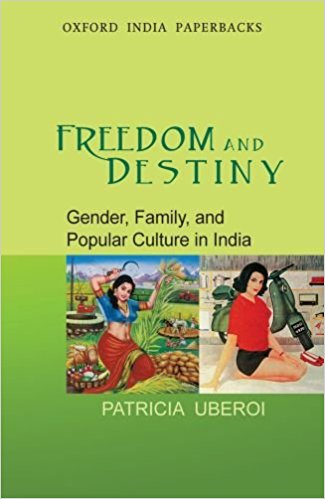Reading a collection of essays written as discrete pieces over a long period of time is a curious exercise in freedom. I’d imagine it would enable the author to break free of ‘writing time’—from the chronology of her own labour process- and engage with her own work as a dialogue of ideas that may not have surfaced all at once. The reader—and the reviewer as reader—enjoys another kind of freedom with a collection of essays. She/he can delve into the book at different points unfettered by chapter schemas, Introduction to Conclusion trajectories, and the structuring of a monograph, escaping into the pleasures of random reading. Truth be told many a monograph are often read in the same eclectic way though perhaps not many readers would admit to this form of reading. The point is that a book of essays as well as an edited volume allows and enables this creative dialogue between author and reader bringing together the varied interests of both. Patricia Uberoi’s collection of essays is loosely bound by her interest in popular cultural forms that range from romance stories, calendar art, Bollywood film and the signage in buses and inscriptions behind three wheeler auto rikshas.
Despite the range of subjects and forms, and the different times at which the essays were written, there is a strong focus in the book and it centres on the Indian family as it is projected and imagined through and in popular art.

